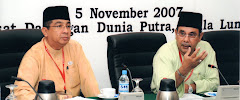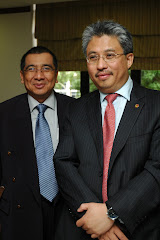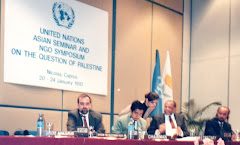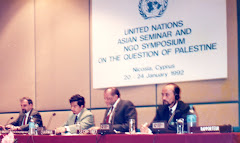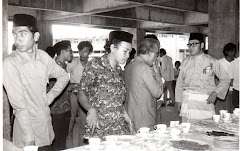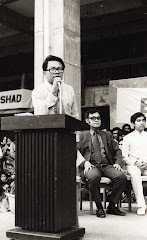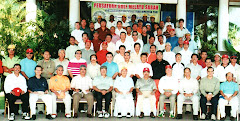RESPECT: There are no clear battle lines as contests are expected to be on friendly terms
THE race for Umno party posts has begun, albeit with less politicking or warring. Compared with other Barisan Nasional component parties, Umno by and large has implemented a democratic reform to its party polls. Almost everyone can contest for any post; just fill in a form and you are good to go.
Former Umno Puteri head Datuk Seri Azalina Othman Said started the ball rolling after throwing down the gauntlet against Datuk Seri Shahrizat Abdul Jalil for her Wanita Umno head post.
Many were surprised by this move and believed that Azalina has finally risen to the occasion to redeem herself after years of hiatus in the party leadership.
Shahrizat, in response, flashed her trademark smile and accepted the challenge. But, she will not go down without a fight. Insiders say that she is looking for a running mate to bolster her campaign.
Word has it that Azalina had met former Johor Wanita Umno head Datuk Halimah Sadique and proposed that they team up for the wing's top posts.
However, Halimah had suggested Azalina run for a deputy's post, on the notion that she was more senior than the former tourism minister. Much to Azalina's disappointment, the deal was called off.
But the negotiation ended in an amicable manner. Azalina did not bear a grudge and Halimah respected her decision. It is an admirable trait, considering that the two women leaders are politically prominent.
Azalina's move to contest as Wanita Umno head has in some way provided an impetus for outgoing Puteri members -- who would be automatically absorbed as Wanita members upon reaching a certain age limit -- to stride into an unchartered territory of a senior wing.
Puteri head Datuk Rosnah Abdul Rashid Shirlin is now gunning to be an executive councillor in Wanita. It is not known whether she would be bringing her followers to the fold but that is only to be expected, if she wants to strengthen her position in Wanita.
In vacating her post, at least two Puteri leaders -- Mas Ermiyati Samsudin and Jamilah Hanim Othman -- have announced their decision to contest as Puteri head.
Differing in style and grassroots support, Mas Ermiyati and Jamilah are seen as the two most suitable candidates to lead Puteri. However, until today, they have yet to draw the battle lines and preferred that the contest should be done on friendly terms.
Jamilah had said that she would rather not have a running mate at the risk of turning the wing fractious. Things are going well for Puteri and it seems that it has politically matured over the years.
In Umno Youth, there has not yet been a clamour over contest for the chief post, as most have agreed there should be no challengers to Khairy Jamaluddin. However, it is a different story for the Umno Youth vice-chief post.
Datuk Razali Ibrahim is still mulling over post he would be contesting, but pundits agreed that he is likely to forgo his post in favour for a seat in the party's supreme council.
Circumstances are pointing to similar lead as well, when a number of Umno Youth leaders such as Umno youth executive councillor Lokman Noor Adam, Perak youth chief Khairul Azwan Haron and Tenom youth chief Jamawi Jaafar announced their candidacy for the number two post.
All this is being done in the spirit of democracy and the grassroots are supportive of the decisions made by the contenders.
Observers note that the new system to elect party leaders has certainly opened up the flood gates for aspirants, and thus far has promoted healthy political ideals.
As the contest draws nearer, it will be interesting to see if the battles for leadership posts will be more or less intense as in previous party polls.
Read more: It's gently gently at Umno polls - Columnist - New Straits Times http://www.nst.com.my/opinion/columnist/it-s-gently-gently-at-umno-polls-1.348754#ixzz2dt6ABdq9






























